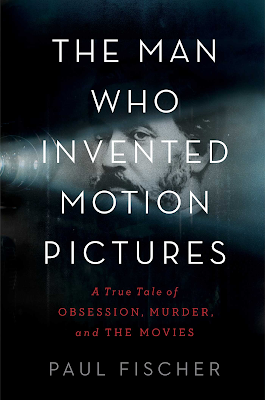From the dust jacket- The year is 1888, and Louis Le Prince is finally testing his “taker” or “receiver” device for his family on the front lawn. The device is meant to capture ten to twelve images per second on film, creating a reproduction of reality that can be replayed as many times as desired. In an otherwise separate and detached world, occurrences from one end of the globe could now be viewable with only a few days delay on the other side of the world. No human experience—from the most mundane to the most momentous—would need to be lost to history.
In 1890, Le Prince was granted patents in four countries ahead of other inventors who were rushing to accomplish the same task. But just weeks before unveiling his invention to the world, he mysteriously disappeared and was never seen or heard from again. Three and half years later, Thomas Edison, Le Prince’s rival, made the device public, claiming to have invented it himself. And the man who had dedicated his life to preserving memories was himself lost to history—until now.
The Man Who Invented Motion Pictures pulls back the curtain and presents a “passionate, detailed defense of Louis Le Prince…unfurled with all the cliffhangers and red herrings of a scripted melodrama” (The New York Times Book Review). This “fascinating, informative, skillfully articulated narrative” (Kirkus Reviews, starred review) presents the never-before-told history of the motion picture and sheds light on the unsolved mystery of Le Prince’s disappearance.
Review- An interesting and well written book about the making of motion pictures and the disappearance of the man who did it first. Fischer takes the reader from the beginning of Le Prince's life all the to the last time he was seen alive. The reader gets to the know his family, friends, and his creative genius. We are also shown the other people who worked on creating the moving pictures and who might have cheated Le Prince's family out of their rights to the money from the invention. But the final theory about Le Prince's death is one all too real and easy to believe. The writing is good, the notes at the back provide excellent insight into the people and their time. Fischer does good research, so the reader wants to learn more about the other people involved in the creation of motion pictures, the notes are a good places to start. I would recommend this book for people who like true crime.
I give this book a Five out of Five stars. I get nothing for my review and I borrowed this book from my local library.

No comments:
Post a Comment